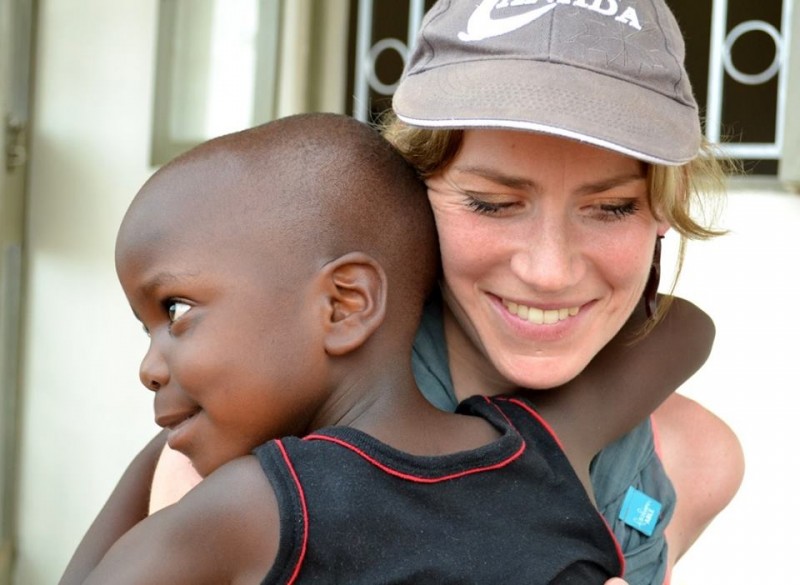I had my heart broken when I was 18.
It wasn’t a boy. It was a Third World country.
 My heart broke on a Bible school mission trip to Mexico. Prior to leaving, our goal was humble—it was not to fix anything or anyone, but rather, to be broken. We were told, “Remember, you’re not going so much as to help, as to have your heart changed.”
My heart broke on a Bible school mission trip to Mexico. Prior to leaving, our goal was humble—it was not to fix anything or anyone, but rather, to be broken. We were told, “Remember, you’re not going so much as to help, as to have your heart changed.”
While we were only there for a week, we worked hard building a guest house for missionaries and playing soccer with the local kids—but in truth, it probably would have been more efficient and cost-effective if we had just sent money down to hire locals to do the work. But that was not the goal of the trip. The goal was to open young people’s eyes to the realities of the world. And my life was changed by that week of beans and rice and holding babies with no diapers and worshiping alongside farmers whose backs were bent from years of hoeing tiny plots of earth.
So I certainly see a purpose for short-term trips—but too often we misunderstand that purpose. Or perhaps we’re just afraid to be honest about the purpose because it feels selfish.
Humility and Majesty
Rather than assuming we can best help someone else in such a short time, let’s be honest about our goals; as Robert Lupton says in Toxic Charity, many mission trips are more aptly called “religious tourism.” On these trips, we view another part of the world and how they live, and we have our hearts moved for the things that move God. These trips usually help us, but not necessarily them.
And that’s okay so long as we don’t inflict harm in the process; so long as we don’t go there to use the locals. So long as we don’t go with the wrong motive or impression: to erase some white guilt or to do an act of service that will somehow “fix” the world. Not only do these attitudes shame, versus dignify, the nationals, but they also prevent us from understanding the humility of our situation or the majesty of God.
The majority of youth who go on short term trips will not become long-term missionaries, Lupton says. Nevertheless, these youth will always have the memory of what they saw, and this memory will hopefully affect how they live even in the developed world—inspiring them to give more to local charities, to sponsor children, and to shop more consciously and ethically.
And there will always be the few who will commit their lives to serving the poor because of what they’ve seen. They never would have known—they never would have had their hearts broken—if it hadn’t been for religious tourism.
That said, some trips actually do bring help and relief that can only be conducted by outsiders. We need to be honest about those, too. My friend attends a church committed to only sending short-term missionaries to one particular country at a time. They go on a regular basis, not only to develop a long-term relationship with the locals and to establish credibility with them, but also to train up leaders in that community. They train leaders so that when the church does pull out of that country, the country will be stronger for it. They want the nationals to rely on their own resources and to know how to continue sustainable development. This kind of trip takes dedication, discernment, commitment, and sacrifice.
Here are five ways to know if you’re on a mission trip or doing religious tourism:
- Is the goal of the trip more to help the people you are visiting, or to have your heart broken?
- Is the money you’re spending on the trip being invested into long-term efforts for the country’s well-being?
- Is this trip part of a multi-faceted plan to help this country develop sustainability and train up leaders?
- Are you doing something on this trip that could be better done by the local people?
- Upon returning home will your church or organization continue to follow up with the people you’ve met with the intention of developing a long-term relationship?
Hope and Future
My most recent travels took me to Uganda in January this year. I went on a blogger’s trip, to tell stories of the work a particular nonprofit was doing.
Even though I left Uganda five days later, Uganda never left me. It clung to me as red dirt clings to your feet. I could smell the plantains and the fish, could feel the beat of the sun long after returning home to snowy Canada, and night after night I’d fall on my knees in front of the woodstove. Weeping for all the abandoned babies I’d met whose parents had passed away in the night from HIV; for all the hopeless young men sniffing glue to try to numb their hunger pains, and all the heartbroken mothers who couldn’t feed their children.
I wasn’t planning on starting a nonprofit, but I knew that when I went to Uganda, it felt like going home. For all the trips I’d done, none had wrapped its arms around me like Uganda. The people were family, and I couldn’t just go back to my everyday life. I knew my family was suffering, and I needed to spend my life on their behalf. To give those children a hope and a future. So I started The Lulu Tree—a nonprofit working in the slum of Katwe, Uganda, with the goal of preventing tomorrow’s orphans by equipping today’s mothers.
Whether it’s religious tourism or a genuine short-term mission trip, these trips allow us to meet our extended family—the people of God, around the globe—and join in what the Lord is already doing. We find home in someone else’s eyes. We bend low and hug the child on the street and shake his mother’s hand. That’s what these trips are about.
It’s not our job to fix the world. But if these trips help us know and love our family around the world, then I give thanks for religious tourism.
Is there enough evidence for us to believe the Gospels?
 In an age of faith deconstruction and skepticism about the Bible’s authority, it’s common to hear claims that the Gospels are unreliable propaganda. And if the Gospels are shown to be historically unreliable, the whole foundation of Christianity begins to crumble.
In an age of faith deconstruction and skepticism about the Bible’s authority, it’s common to hear claims that the Gospels are unreliable propaganda. And if the Gospels are shown to be historically unreliable, the whole foundation of Christianity begins to crumble.


































